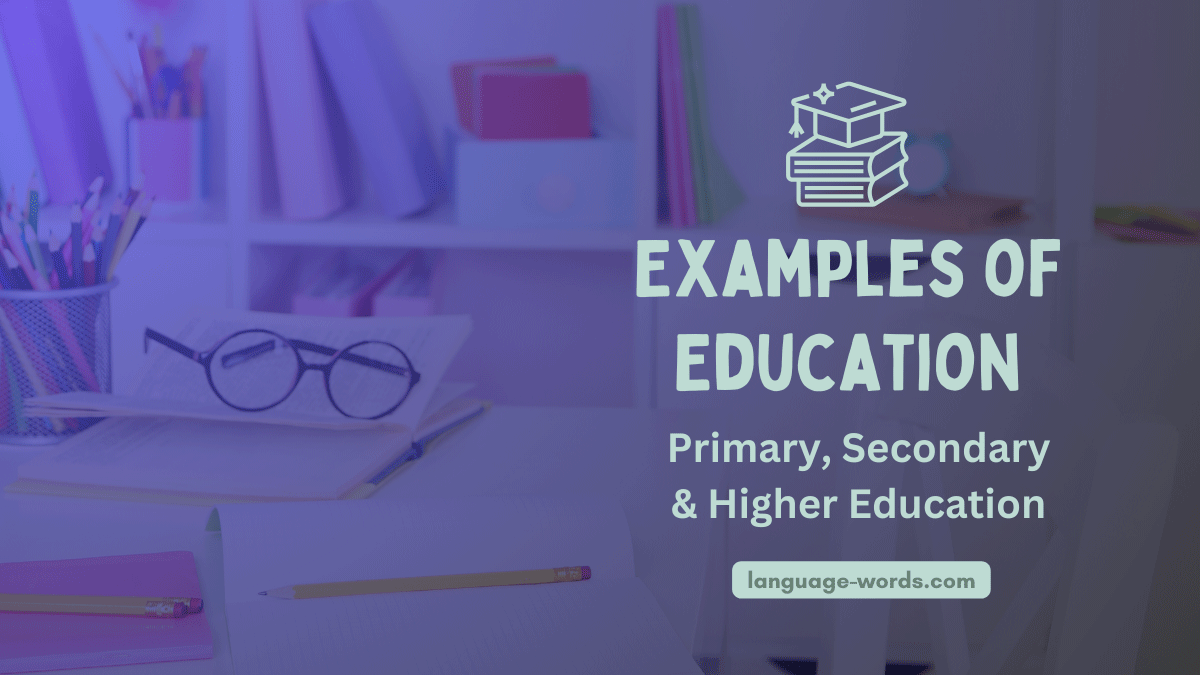When it comes to education, there are countless examples that showcase its transformative power. From traditional classrooms to innovative online platforms, education has the ability to shape minds, open doors, and change lives. In this article, I’ll be exploring some fascinating examples of education that highlight the diverse ways in which knowledge is imparted and acquired.
One example of education that has gained popularity in recent years is online learning. With the advancements in technology, individuals now have the opportunity to access quality education from the comfort of their own homes. Whether it’s through interactive video lectures, virtual classrooms, or online courses, the digital landscape has revolutionized the way we learn. I’ll be delving into some success stories of individuals who have pursued education through online platforms and the impact it has had on their personal and professional growth.
Another compelling example of education is experiential learning. This approach emphasizes hands-on experiences and real-world applications, allowing learners to actively engage with the subject matter. From internships and apprenticeships to field trips and simulations, experiential learning provides a dynamic and immersive educational experience. I’ll be sharing some inspiring stories of individuals who have embraced experiential learning and how it has enriched their understanding and skill development.
Join me as we explore these and other captivating examples of education, shedding light on the diverse ways in which knowledge is acquired, shared, and applied. Whether you’re a student, educator, or lifelong learner, this article will offer valuable insights and inspiration on the power of education.
What is Education?
Education is the foundation for growth and development. It shapes our thoughts, expands our horizons, and gives us the power to make a positive impact on the world around us. But what exactly is education? In this section, I’ll explore the different aspects of education and its importance in our lives.
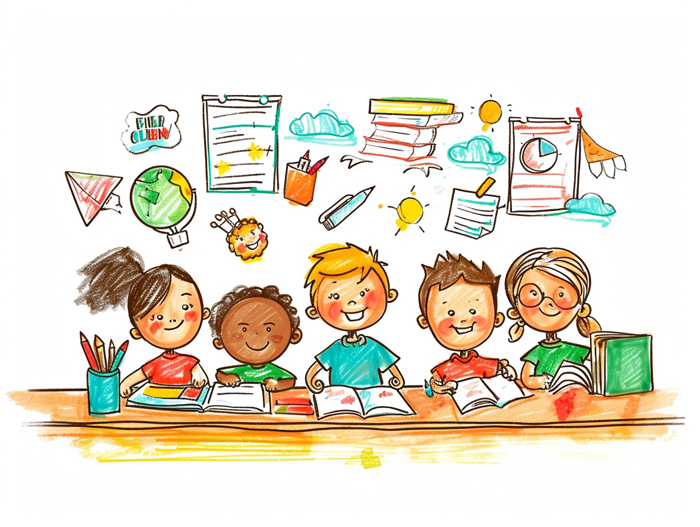
Education is more than just learning facts and figures. It is a lifelong process that encompasses formal instruction, personal experiences, and practical skills. It’s about acquiring knowledge, but also developing critical thinking, problem-solving abilities, and communication skills.
Formal education is the structured learning that takes place in schools, colleges, and universities. It provides a structured curriculum designed to teach various subjects like math, science, history, and literature. Through formal education, we gain a foundational understanding of different disciplines, preparing us for higher studies and future careers.
Informal education refers to the learning that happens outside the traditional classroom setting. It includes activities like reading books, watching educational videos, attending workshops, or engaging in hobbies and interests. Informal education allows us to explore our passions, expand our knowledge, and gain practical skills that complement formal education.
Experiential learning is another key aspect of education. It involves learning through hands-on experiences and real-world applications. Instead of just studying theories, experiential learning encourages active engagement and problem-solving. By applying what we learn in practical situations, we gain a deeper understanding of the subject matter.
Online education has revolutionized the way we learn. With the advancements in technology, access to quality education is now possible from the comfort of our homes. Online platforms offer a wide range of courses and programs, allowing individuals to learn at their own pace and according to their interests. This flexibility has made education more accessible and inclusive.
Education encompasses formal and informal learning, the application of knowledge through experiential learning, and the accessibility provided by online platforms. It equips us with the skills and knowledge we need to thrive in the world. But education is not just about acquiring information; it’s about personal growth, critical thinking, and making a positive difference in society.
Definition List For Examples of education
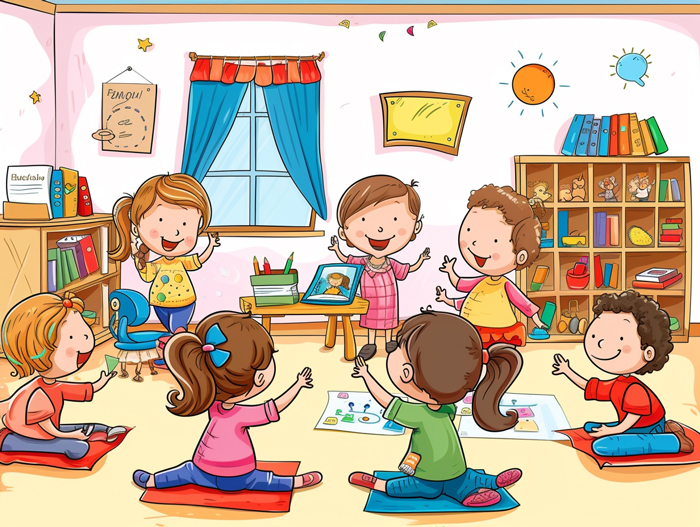
As an expert blogger with years of experience, I want to provide you with a comprehensive list of examples that illustrate the different forms and methods of education. Understanding these examples can give you a deeper appreciation of the diverse ways in which we can gain knowledge and skills. So, let’s dive into the definition list for examples of education:
- Formal Education: This refers to the structured education system provided by schools and universities. It follows a curriculum designed to cover various subjects and academic disciplines. This type of education typically involves classroom instruction, homework assignments, and examinations.
- Informal Education: Unlike formal education, informal education takes place outside of traditional classrooms. It can occur through everyday activities and experiences, such as reading books, watching educational videos, attending workshops and seminars, or engaging in hobbies and interests. Informal education allows for self-directed learning and exploration of personal interests.
- Experiential Learning: This educational approach focuses on hands-on experiences and real-world applications. It emphasizes learning by doing and encourages active engagement. Examples of experiential learning include internships, apprenticeships, laboratory experiments, field trips, and project-based assignments. It allows learners to develop practical skills and gain a deeper understanding of the subject matter.
- Online Education: The revolution of online education has transformed the learning landscape. With the internet and various online platforms, individuals can access quality education from the comfort of their own homes. Online courses, webinars, and virtual classrooms have made education more accessible and flexible. They provide opportunities for lifelong learning and skill development.
- Vocational Education: Vocational education focuses on providing practical and job-specific skills. It prepares individuals for specific careers or trades by offering training programs, certifications, and apprenticeships. Examples of vocational education include culinary schools, trade schools, technical institutes, and vocational colleges.
- Special Education: This form of education is tailored to meet the needs of students with disabilities or special learning requirements. It provides individualized instruction and support to help students overcome challenges and reach their full potential. Special education may include specialized classrooms, assistive technologies, and personalized educational plans.
- Continuing Education: Continuing education is aimed at professionals who want to enhance their knowledge and skills in a specific field. It offers advanced courses, workshops, seminars, and certifications to keep individuals updated with the latest industry trends and developments.
Importance of Education
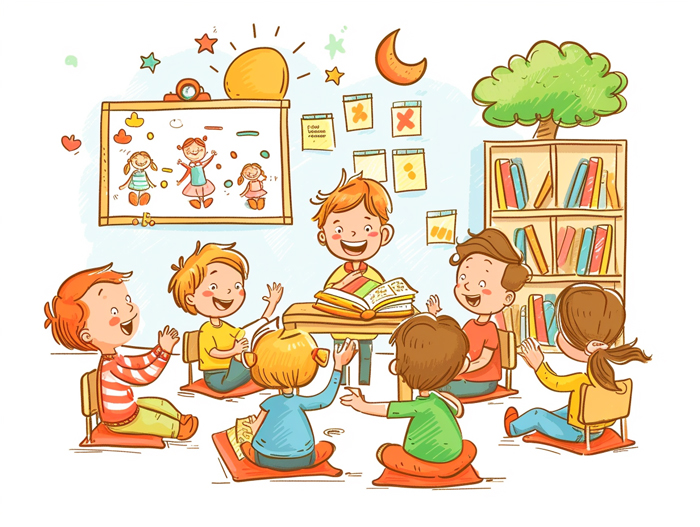
Enhances Knowledge and Skills
Education plays a crucial role in enhancing our knowledge and skills, allowing us to develop a strong foundation for success in various aspects of life. Through formal education, we gain a structured curriculum that covers essential subjects such as mathematics, science, language arts, and more. This foundational knowledge provides us with the necessary tools to navigate the complexities of the world around us.
Additionally, education goes beyond just academic subjects. It offers opportunities for interdisciplinary learning, encouraging us to explore diverse fields and expand our horizons. By engaging in activities like reading books, attending workshops, or participating in extracurricular activities, we can acquire a broader knowledge base and develop well-rounded skills.
Promotes Personal Growth
Education not only enhances our intellectual abilities but also promotes personal growth. Through the process of learning, we gain valuable life skills such as critical thinking, problem-solving, and effective communication. These skills are essential for adapting to new challenges, making informed decisions, and succeeding in various personal and professional endeavors.
Moreover, education fosters personal development by nurturing qualities such as curiosity, creativity, and resilience. It encourages us to constantly question, explore, and seek new knowledge, helping us become lifelong learners. This continuous pursuit of knowledge empowers us to adapt to a rapidly changing world and seize opportunities for personal and professional growth.
Education holds immense importance in our lives. It enhances our knowledge and skills, providing us with a solid foundation for success. It also promotes personal growth, equipping us with essential life skills and nurturing our curiosity and resilience. Whether it’s formal education in schools and universities or informal learning through various activities, education empowers us to reach our full potential and lead fulfilling lives.
Types of Education
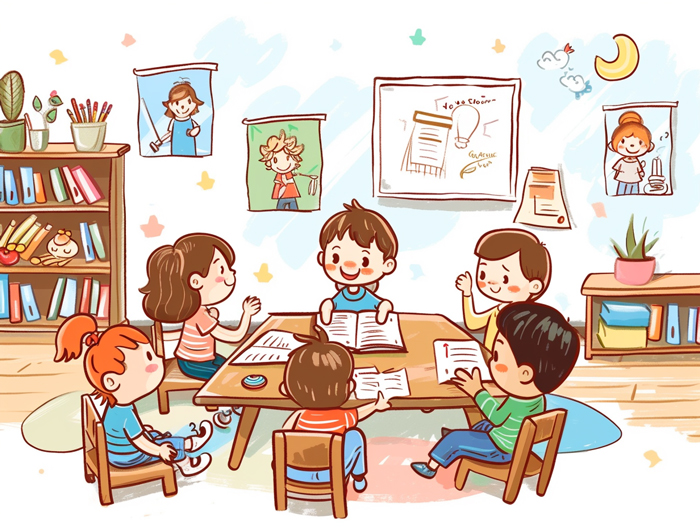
Formal Education
Formal education refers to the structured and systematic learning that takes place in educational institutions such as schools, colleges, and universities. It follows a predefined curriculum and is typically led by qualified teachers. Formal education plays a vital role in providing foundational knowledge in subjects like mathematics, science, language arts, history, and more. It focuses on developing essential skills and competencies that are required for future academic and professional success.
Key points about formal education:
- Follows a structured curriculum in educational institutions
- Led by qualified teachers
- Provides foundational knowledge in various subjects
- Emphasizes the development of essential skills and competencies
Informal Education
Informal education, on the other hand, is less structured and takes place outside of traditional educational settings. It encompasses various learning opportunities that occur in everyday life, such as learning from experience, observation, and interactions with others. Informal education can occur through activities such as reading books, attending workshops, participating in community programs, and exploring personal interests and hobbies. It enables individuals to acquire knowledge and skills in a more flexible and self-directed manner.
Key points about informal education:
- Less structured and takes place outside of educational institutions
- Learning through experience, observation, and interactions with others
- Includes activities like reading, attending workshops, and community programs
- Allows for flexible and self-directed learning
Education is not limited to formal settings but encompasses both formal and informal methods of learning. Formal education provides a structured curriculum and foundational knowledge, whereas informal education allows for a more flexible and self-directed approach to learning. Both types of education play an important role in enhancing knowledge, building skills, and promoting personal growth.
Examples of Education
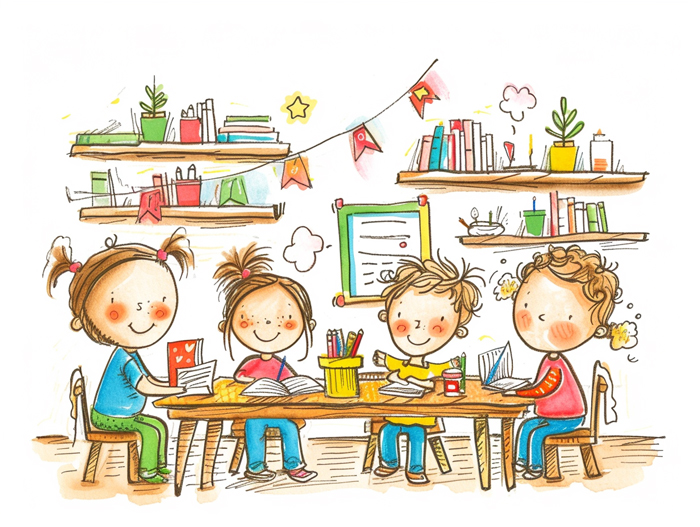
Primary Education
In primary education, students are introduced to the foundational knowledge and skills they need for their future education. This stage typically covers children aged 5 to 11, and it focuses on subjects like mathematics, English, science, social studies, and physical education. Primary education provides a structured curriculum that lays the groundwork for further learning.
During this phase, children learn basic reading and writing skills, develop numeracy abilities, and explore various scientific concepts. They also engage in activities that promote creativity and critical thinking, such as art projects and problem-solving tasks. Additionally, primary education emphasizes the development of social and emotional skills through group projects and interactive learning experiences.
Some examples of primary education include:
- Kindergarten programs that introduce children to the school environment and help them establish a love for learning.
- Elementary schools that provide a comprehensive education in core subjects while fostering cognitive and social development.
Secondary Education
Secondary education builds upon the foundation established in primary education and prepares students for college or the workforce. This stage typically covers students aged 12 to 18 and includes middle school and high school.
In middle school, students continue to strengthen their knowledge in key subjects like mathematics, science, English, and history. They also have the opportunity to explore elective courses, such as foreign languages, arts, and technology. Middle school education aims to expand students’ critical thinking skills, research abilities, and independent learning strategies.
High school marks a crucial period in a student’s education journey. Here, they have the chance to specialize in subjects of interest and prepare for further education or career paths. Students take advanced courses, earn credits, and may have the option to participate in extracurricular activities, clubs, and sports.
Examples of secondary education include:
- Middle schools that provide a transition between elementary and high school, incorporating interdisciplinary learning and expanding students’ knowledge in various subjects.
- High schools that offer a wide range of courses, including advanced placement (AP) or International Baccalaureate (IB) programs, to enrich students’ academic experience and enhance their college readiness.
Higher Education
Higher education refers to post-secondary education that takes place after the completion of secondary education. It includes universities, colleges, vocational schools, and professional institutions. Higher education equips students with specialized knowledge and skills for specific careers or professions.
Higher education offers a diverse range of academic programs and disciplines, allowing students to pursue their interests and passions. Students can earn undergraduate degrees (e.g., Bachelor’s degrees), graduate degrees (e.g., Master’s degrees), and advanced professional degrees (e.g., Doctorate degrees, MD, JD).
Examples of higher education include:
- Universities that provide a comprehensive education in various fields and offer undergraduate and graduate degree programs.
- Community colleges that offer associate degrees and certificates in specific areas of study.
- Vocational schools that focus on practical training and skill development in fields such as healthcare, culinary arts, or automotive repair.
Higher education plays a critical role in shaping individuals’ careers and providing them with the necessary qualifications and expertise for their chosen fields. It also fosters intellectual growth, critical thinking, and research skills.
Remember, education is a lifelong journey, and these examples of education are just a glimpse into the various stages and opportunities it offers for knowledge acquisition, personal growth, and career development.
Conclusion
Education is a fundamental aspect of our lives, and it plays a crucial role in shaping our future. In this article, I have discussed various examples of education to highlight its significance and impact. We explored primary education, which lays the foundation for children’s learning and development. Secondary education was also discussed, as it equips students with the necessary skills and knowledge to pursue higher education or enter the workforce. Additionally, we delved into the realm of higher education, which offers specialized training and expertise for specific careers or professions.
Throughout the article, I emphasized that education is not just limited to a specific age or phase of life. It is a lifelong journey that fosters personal growth and opens doors to endless opportunities. By acquiring knowledge and skills, individuals can enhance their career prospects and make meaningful contributions to society.
Education is an invaluable asset that empowers individuals, broadens horizons, and shapes the future. It is essential for personal development, social progress, and economic growth. Therefore, we must continue to prioritize and invest in education to create a brighter and more prosperous world.

